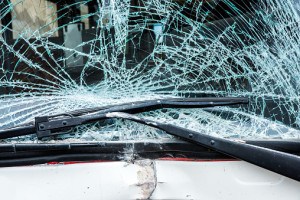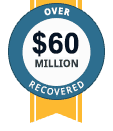The Increased Ejection Risk in Rollover Auto Accidents
 Injuries from a serious car accident can have a lasting impact on your quality of life and your ability to work. You are encouraged to contact an experienced Newark, Wilmington or Seaford auto accident attorney from Silverman, McDonald & Friedman who can help you pursue compensation for your injuries.
Injuries from a serious car accident can have a lasting impact on your quality of life and your ability to work. You are encouraged to contact an experienced Newark, Wilmington or Seaford auto accident attorney from Silverman, McDonald & Friedman who can help you pursue compensation for your injuries.
In rollover crashes ejection is a major risk. Ejection is one of those unspoken fears that can plague parents’ minds when they travel with their children in a vehicle. Fortunately, rollover crashes are not that common. Unfortunately, when they do occur the injuries tend to be serious and there are often fatalities. Rollovers are infrequent because vehicle manufacturers are making vehicles safer, and they are developing safety equipment and devices such as electronic stability controls designed to keep passengers inside of the vehicle when an auto accident. Despite the best efforts of automotive designers and manufacturers, ejections can still occur.
What are some of the causes of rollover crashes?
The Insurance Institute for Highway Safety (IIHS) reports that most rollover crashes occur when the driver loses control of the vehicle and it begins to slide sideways. Something can then trip the vehicle causing it to rollover. The something that the vehicle trips on can be a sidewalk curb, a tree stump or the uneven ground on the shoulder of a highway. Rollovers can also occur when the driver turns the vehicle too aggressively at high speed with a tight turning radius. Additionally, the g-forces in a multiple vehicle crash can cause a rollover. The IIHS says that most rollover deaths occur in single-vehicle crashes, and rollovers are responsible for more than half of vehicle occupants killed in single-vehicle crashes.
Causes of ejection of vehicle occupants in a car accident
A driver or passengers can be ejected from any type of vehicle whether involved in a rollover crash or another type of collision. Some of the causes of occupant ejections in a vehicle crash include:
- Vehicle speed
- Defective or failed seat belts
- Failed door latches
- Weak glass in vehicle windows
Types of passenger vehicle ejections
These descriptions may sound gruesome, but there are two basic types of ejections that can happen during a motor vehicle crash:
- Partial ejection, which occurs when a body part, such as an arm, is ejected from the vehicle.
- Total ejection, when the whole body is thrown from the vehicle either through the glass or out of an open window. Severe injuries usually result from a total ejection as the occupant then risks being struck by the vehicle or another vehicle involved in the crash. They can also suffer secondary injuries when they hit the ground.
CNN recently reported an incident where an infant was ejected from a vehicle that had rolled over during a crash ended up in a storm drain 25 feet from the crash. The baby was found alive with only minor scratches on her forehead. First responders at the scene said that divine intervention was responsible for the child having survived the crash. That might be so because police at the scene noted that the child had not been properly restrained in the vehicle and the car seat was not properly installed.
The Delaware Office of Highway Safety offers car seat fitting stations in several locations throughout Delaware including Wilmington, Newark, Dover and Kent. Parents can have their child safety seats inspected and installed by professionals.
The best way to minimize the risk of being ejected in the event of a rollover crash is to always wear a seat belt. Make sure that other passengers are wearing a seat belt and that children are properly buckled in to a car seat and that the car seat is properly installed.
When you have been injured in a car accident that was caused by the negligence of another driver, our trusted auto accident attorneys at Silverman, McDonald & Friedman are here to fight for the compensation you deserve. You are welcome to call 302-888-2900 or fill out our contact form to schedule a free consultation to discuss your case today. We have offices in Wilmington, Newark or Seaford to serve you.

Attorney Jeffrey S. Friedman joined Silverman, McDonald & Friedman in 2001. He graduated from Widener University School of Law, and is admitted to practice law in Delaware and Pennsylvania, and in several Federal Circuit courts. He areas of concentration include auto accident and workers’ compensation cases. Read more about Attorney Friedman here.

